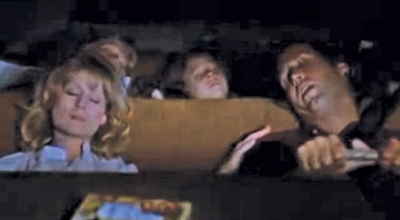The power of the jester
Permanent link All Posts
There's this scene in National Lampoon's Vacation that gets me every time I see it.
Maybe you remember it too. It's the one where the camera pans to the two kids sleeping in the back seat of the Griswold mobile, then to the mom napping on the passenger side, and finally to Clark sleeping peacefully in the driver's seat—the car still in motion. It's just a few seconds long, but it always makes me laugh.
We have Harold Ramis to thank for that funny moment and about a million more like it.
Ramis, the Chicago Jewish filmmaker and a giant in the world of comedy who brought us beloved hits like Stripes, Ghostbusters, and Groundhog Day, died in February. At only 69, he left this world way too young.
But what a legacy he leaves behind, a treasure trove of many of the funniest movie classics of the last four decades, movies we'll be laughing at from now until eternity. And with each funny moment, with each belly laugh, he made the world a better place.
"Funny" is underrated. Funny people don't "get no respect," to quote Rodney Dangerfield, another Jewish comedy legend.
But making people laugh, helping them forget their troubles even for a little while, has power. In fact, that's a pretty hefty contribution to society if you ask me.
The act of cheering someone up is considered a big mitzvah in the Jewish tradition. The Baal Shem Tov, the famed Jewish mystical rabbi, once said, "Whoever lives in joy does the work of the Creator."
There's a story in the Talmud about Rabbi Beroka Hoza'ah who would frequent the town market. On one of his visits, he asks the prophet Elijah if "there is anyone in this market who has a special share in the world to come?" In response, the prophet points to two brothers. So the rabbi approaches the men and asks them their occupation. "We are jesters," they reply. "When we see men who are depressed, we cheer them up…"
Life's tough. There's famine, poverty, disease, hatred, and war. And, on a less global level, in our everyday lives, "it's always something," as another Jewish comedian, Gilda Radner, used to say.
Even if you don't currently have any big complaints, there isn't a Chicagoan out there who didn't need a laugh—and maybe a hug too—this past winter of perpetual polar vortexes.
Throughout history, we Jews certainly have had our share of tsuris (trouble). With everything we've been through, we've got to laugh because otherwise we'd cry. As Sholom Aleichem put it, "The world is in a terrible state, and just on spite we ought not to cry about it. And if you want to know the truth, that's the source of my humor. Just on spite, I'm not going to cry. Just to spite them, there's going to be laughter."
Maybe that's why in last year's Pew study of American Jews, 42 percent of people surveyed listed "humor" as essential to their Jewish identity, which Rabbi Daniel M. Bronstein explored in his recent lecture for ELI Talks: Chicago, sponsored by JUF News.
Like so many of the people surveyed, I love to laugh. Happiness studies show that the average adult laughs 17 times a day, but I'm shooting for 20.
Lately, I've been hooked on The Tonight Show ever since the show recently ushered in the talented and adorable Jimmy Fallon, a past YLD Big Event headliner. As Fallon recently remarked to his television audience, "I just want to make you laugh and put a smile on your face" before you go to bed.
And how can you not smile watching Fallon lip sync with Paul Rudd to Tina Turner, or croon alongside the Muppets and Billy Joel?
So thank you, Harold. And thank you, Jimmy.
Thank you to funny people everywhere for repairing the world, one laugh at a time.



.jpg)



